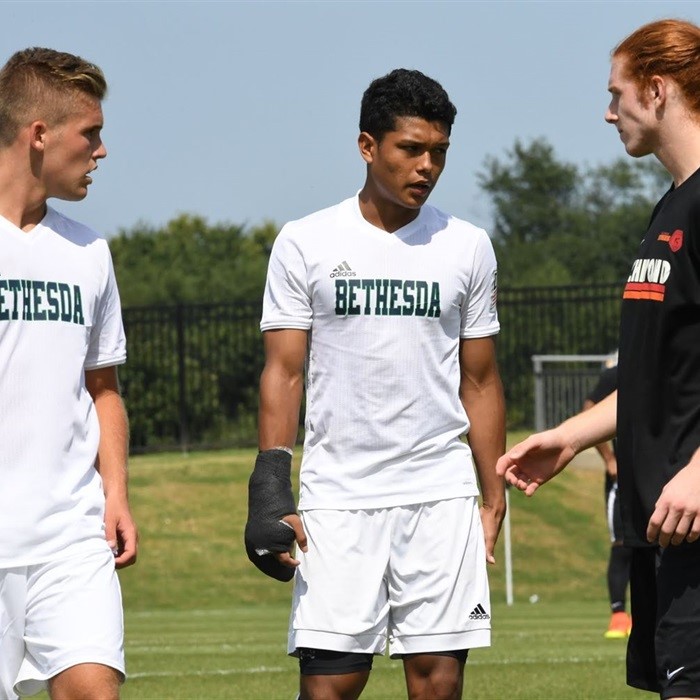Immigration: We Can Balance Support with Security

While many incoming freshmen college athletes are looking ahead and forward to the next chapter of their lives, a chapter they worked so hard to reach, an elite college-bound athlete — with the misfortune of being brought into the US at the age of 11 by his parents illegally in order to escape the violence in his home country of El Salvador — cannot look forward.
At the age of 19, Lizandro Claros Saravia was beyond worried about an uncertain future, and as he looked over his shoulder he saw the cement walls of his cell where he was to wait until his deportation. On August 2, Lizandro, along with his brother, were deported back to El Salvador.
In early June, Thomas Homan, the acting director of Immigration and Customs Enforcement, stated before a congressional committee that “if you are in this country illegally, and you committed a crime by entering this country, you should be uncomfortable, you should look over your shoulder and you need to be worried.” Well, mission accomplished.
Just a few weeks ago, we drove our 18-year-old son to North Carolina so he could start the next chapter of his life and begin to study and play soccer at the next level. Around the same time, I noticed lots of tweets and announcements about so many of the boys my son played with or against throughout his soccer career in northern Virginia. They were all exciting announcements or pictures of young athletes heading off to play college soccer and boasting their new teams’ colors, slogans, or mascots.
It was in the mix of these celebratory messages that I noticed a tweet from Bethesda Soccer Club (BSC), alerting the readers of Lizandro’s case. Even though Lizandro had been invited to attend and play soccer at a two-year Louisburg College in North Carolina on a soccer scholarship this fall, this message was alerting the readers of his recent arrest by ICE agents. Thomas Homan’s cautionary note of “you should look over your shoulder and you need to be worried” held true.
But did Homan or others at the helm of creating and enforcing policies that would return a young man with so much potential and a dream for a better future pause to ask, “Why did his family risk so much to come to the United States to begin with?” Did they stop to ask, “What awaits this young man when he returns?”
Escaping Violence
Lizandro’s family left El Salvador to flee the violence that has plagued that country for decades. In 2016, El Salvador’s murder rate was 81.2 per 100,000 inhabitants — down from 104 in 2015, the highest in the world. Today, El Salvador and Guatemala rank first and second respectively in rates of homicide against children and adolescents globally. The UN Special Rapporteur on Violence found that in El Salvador, the rate of femicide tripled between 2000 and 2011. Much of the violence in the region comes from gang members, who engage in murder for hire, carjacking, extortion, and trafficking in drugs, arms, and humans.
In a recently published policy brief, Futures Without Violence notes that while in the recent years the US has invested millions of dollars in the Northern Triangle region to curb the violence, most of the funds and initiatives have been for implementation of security strategies and not development strategies. Moreover, our poorly functioning immigration court system conducts immigration hearings for over 50 percent of children and families without the aid of an attorney, which then leads to forced return of many at-risk migrants to unsafe circumstances. These are the important facts in the background of why many families, such as Lizandro’s, escaped their homeland to find refuge, safety, and a better life – and why so many opted to enter the US illegally.
Protecting the Vulnerable
In the game of soccer, one of the greatest skills to attain is that of balance, and an agile player is a player that has the ability to change his or her direction without losing their balance. The professed precursor to the ambitious immigration overhaul in place today was the call by a political leader to root out all the criminals and improve our national security. Like in the game of soccer, our society must be able to change its direction without losing balance; it must be agile. We are capable of advancing our collective security interests while at the same time supporting those who, due to circumstances beyond their control, fall into vulnerable and unprotected categories.
Our commitment to protecting and allowing for the advancement of those in need does not take away; rather, it strengthens our nation’s peace and prosperity. The current immigration policies of returning young men like Lizandro back to a violent and dangerous country, coupled with a push to restructure the diplomatic and development arm of our government and to significantly reduce the international budget that would implement development programs in countries such as El Salvador, is far from a balanced and well thought-out approach. Instead, it is a response that lacks reflection, strategy, and a long-term goal.
At Futures Without Violence, we advocate for investing in the long-held and cherished American tradition of supporting vulnerable people at home and abroad, including the most marginalized, with the critical assistance they need to build healthy, self-sufficient lives.





